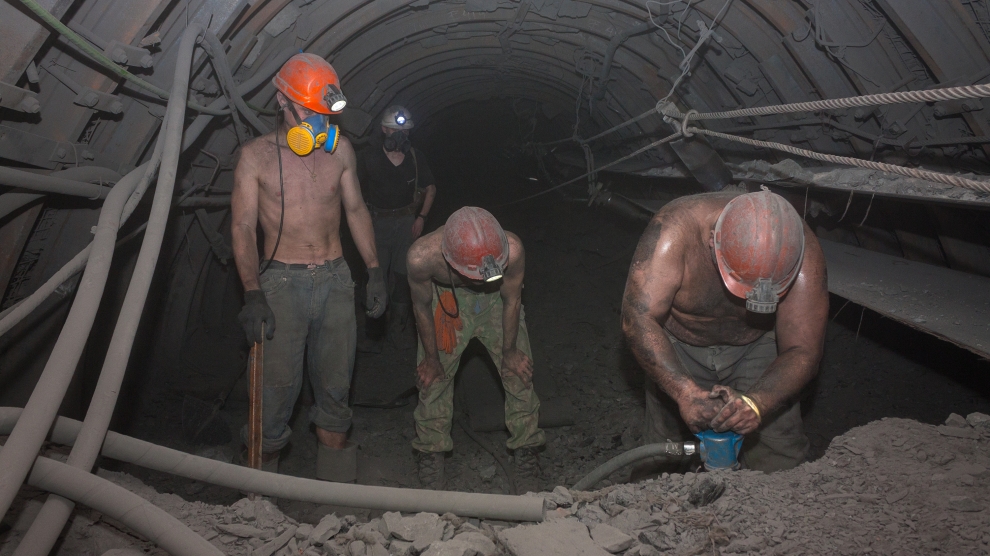Poland’s National Fund for Environmental Protection and Water Management (NFEP&WM), in cooperation with the European Commission and the World Bank, has launched an initiative to facilitate a knowledge exchange between coal regions in Poland and Ukraine that can help both countries prepare for an energy transformation in the coming years. The exchange is part of the program that assists countries in developing and implementing inclusive strategies for transitioning to low-carbon energy systems.
The NFEP&WM will support study visits, conferences, and meetings organised by the Institute for Ecology of Industrial Areas and the Central Mining Institute, while the World Bank’s Energy Sector Management Assistance Programme (ESMAP) and Extractives Global Programmatic Support (EGPS) Multi-Donor Trust Fund, in cooperation with the European Commission, will support Ukraine’s participation in the knowledge exchange.
Representatives from Ukraine’s public and private sectors will visit numerous Polish cities, including several in Silesia – Poland’s main coal region. During these visits, they will meet with counterparts to share their experiences addressing the transformation challenges specific to the coal mining regions, including regulatory, organizational, economic, social, spatial, and environmental issues.
“For 31 years, the National Fund for Environmental Protection and Water Management has been a big promoter and sponsor of many successful environmental projects in Poland, including those aimed at improving economic prospects in regions dominated by coal mining,” says Artur Lorkowski, deputy president NFEP&WM. “This enables us to share extensive experience gained in the ‘just transition’ process in Poland. Many cities and regions can boast about considerable achievements in this respect. We are glad that the experience of Polish cities and regions may be inspiring for our partners in Ukraine.”
The government of Ukraine is currently working on a transition plan for its coal mining regions. The aim is to diversify the economies of these regions by creating favourable conditions for developing new sectors and generating new jobs, while simultaneously ensuring equal opportunities are available for miners and workers in industries directly related to the mining sector.
Poland provides valuable lessons when facing this global challenge, providing examples over three decades of Polish coal workers and coal communities chartering new pathways for effective regional transformation. Although Poland is still the largest hard coal producer in the European Union, the country has made impressive achievements in decoupling energy growth from economic growth. Polish GDP increased seven-fold while energy intensity dropped by around one third over the last three decades – making the country a flagship example of socially and environmentally responsible economic development.
“Our new cooperation with the National Fund for Environmental Protection and Water Management in the area of ‘just transition’ is a reflection of two basic objectives of the World Bank’s current program in Poland – supporting green growth and generating knowledge for the benefit of other countries,” says Marcus Heinz, resident representative of the World Bank for Poland and the Baltic States. “Our current flood protection projects on the Odra and Vistula rivers, or those carried out in cooperation with NFEP&WM, confirm that sustainable growth in Poland is of key importance to us.”
The project falls within the framework of the Platform Initiative for Coal Regions in the Western Balkans and Ukraine, created in September 2019 under the leadership of the World Bank and the European Commission, with conceptual support in the field of economic transition from the government of Poland, which hosted the 2018 United Nations Climate Change Conference in Katowice.
By providing advice, developing scientific materials, and promoting cooperation between regions, the platform aims to facilitate the process of the energy transition as well as the economic transformation of coal regions towards a low-carbon economy. The platform builds on the experience of the European Commission’s Initiative for Coal Regions in Transition, extending its scope by offering more opportunities to exchange ideas and knowledge via physical and virtual learning opportunities.
“The energy transition process affects everybody in the coal regions of Europe and finding solutions requires the inclusion of all regional actors”, says Catharina Sikow-Magny, director of the Internal Energy Market at the European Commission. “The best ideas often come from the regions, and the EU Initiative for Coal Regions in Transition is a clear example of how ‘just transition’ initiatives promote the exchange of knowledge, strategy development, and project identification to assist coal regions in their energy transition.”
—
Unlike many news and information platforms, Emerging Europe is free to read, and always will be. There is no paywall here. We are independent, not affiliated with nor representing any political party or business organisation. We want the very best for emerging Europe, nothing more, nothing less. Your support will help us continue to spread the word about this amazing region.
You can contribute here. Thank you.







[…] Ukraine set to learn from Poland’s energy transition […]
[…] Ukraine set to learn from Poland’s energy transition […]
[…] Ukraine set to learn from Poland’s energy transition […]